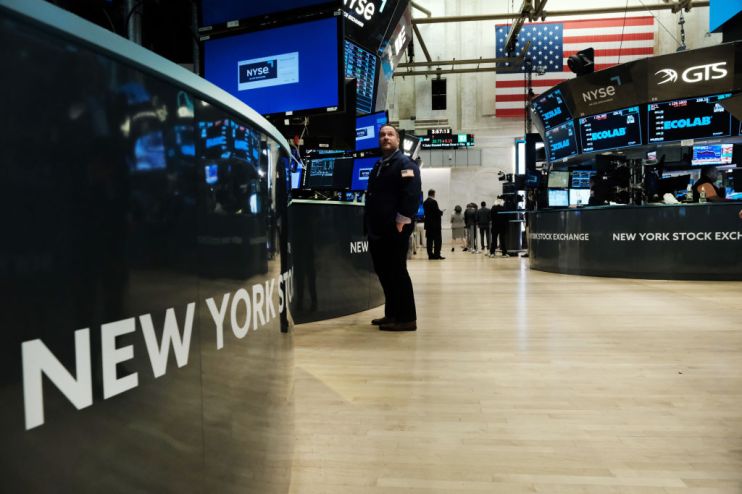Inflation and recession concoction sends global markets into the mire

Mounting fears over the worst inflation crunch in recent history plunging the global economy into reverse sent the world’s biggest stock markets spiralling today.
London’s FTSE 100 index slid 1.53 per cent, while the mid-cap FTSE 250 index, which is more aligned with the health of the UK economy, shed 2.61 per cent.
Investors have ditched shares on bets that historically high rises in living costs will trigger a consumer spending slowdown and force central banks to hike interest rates aggressively, potentially tipping major economies into recession.
The City sell-off extended across the pond and shoved Wall Street’s S&P 500 index into bear market territory.
US tech darlings have suffered bruising losses amid the market readjustment. Over the year so far, Apple, Microsoft and Google owner Alphabet have dropped more than 20 per cent.
Investors are worried central banks will have to manufacture a sharp economic slowdown through steep rate hikes to bring inflation down.
“Central banks have no good options. They are now on the horns of a dilemma, allow inflation to rise and be sticky for longer, or hike aggressively to get on top of inflation in order to be able to cut rates later down the line,” Michael Hewson, chief market analyst at CMC Markets UK, said.
Living costs have turbocharged in Britain, the Continent and the US.
Last Friday, new figures showed prices in America have climbed 8.6 per cent annually, much higher than Wall Street’s expectation of 8.3 per cent.
Those figures drove a sell-off last Friday that extended into the new trading week.
During early exchanges, the tech-heavy Nasdaq index today collapsed 3.84 per cent, while the S&P 500 and Dow Jones dropped 3.15 per cent and 2.29 per cent respectively.
In the UK, households are forecast to cut purchases in response to the cost of living crisis reducing their spending power at the quickest rate since the 1950s.
Figures published today illustrated the economy is already in the teeth of a slowdown, with GDP shrinking 0.3 per cent unexpectedly in April, marking the second month in a row output has dropped.
Investors fled sterling in response to the news, causing the pound to weaken over one per cent against the dollar.
UK inflation is running at nine per cent, the highest rate in 40 years, while prices in the eurozone are up 8.1 per cent annually, the quickest acceleration since the creation of the euro in 1999.
The world’s top central banks are in the process of turning off ultra-stimulative policy as they scramble to fight price pressures, dragging down stocks.
The US Federal Reserve is anticipated to hike interest rates 50 basis points for the second meeting in a row tomorrow. Some analysts are even pricing in a 75 basis points rise.
Yields on US government debt soared today as investors priced in more rate rises from Fed chair Jerome Powell and co. The yield curve briefly inverted, often a precursor to a US recession.
The Bank of England is also expected to lift rates for the fifth meeting in a row on Thursday, possibly raising them 50 basis points.
Last week, the European Central Bank confirmed it will hoist rates for the first time in over a decade next month and potentially sign off a 50 basis point rise in September.
Higher borrowing costs are tightening financial conditions and weighing on growth stocks, which represent a large proportion of the Nasdaq.
The prospect of an elevated rate environment is hitting equities by making fixed income assets more attractive.
Companies’ margins are also being squeezed by swelling energy prices caused by Russia’s invasion of Ukraine, higher transport prices as a result of ongoing supply chain disruption and soaring wage bills.
Thinner margins are clouding the earnings outlook, feeding into greater investor caution.
The sell-off bled into the Continent, with pan-European Stoxx 600 falling 2.36 per cent and Germany’s Dax 30 losing 2.43 per cent.
Asian markets suffered harsh losses in overnight trading. Hong Kong’s Hang Seng tumbled 3.39 per cent and Japan’s Nikkei dipped 3.01 per cent.